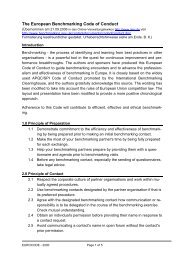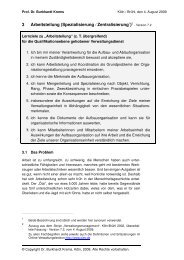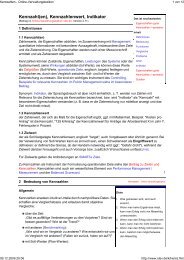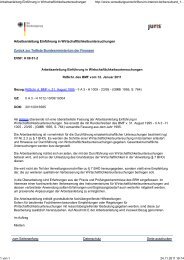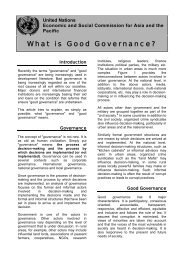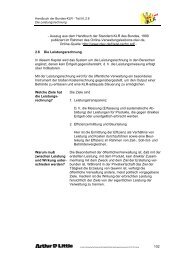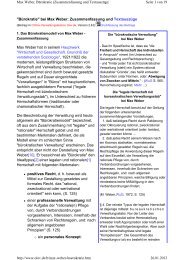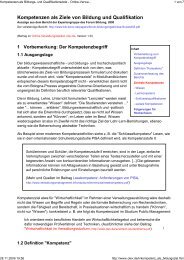Strategy Survival Guide
Strategy Survival Guide
Strategy Survival Guide
Create successful ePaper yourself
Turn your PDF publications into a flip-book with our unique Google optimized e-Paper software.
<strong>Strategy</strong> <strong>Survival</strong> <strong>Guide</strong> Version 2.1<br />
Prime Minister’s <strong>Strategy</strong> Unit<br />
home | strategy development | strategy skills | site index<br />
<strong>Strategy</strong> Skills > Managing Stakeholders & Communications<br />
Tools & Approaches<br />
Stakeholders<br />
• Identifying key<br />
stakeholders and their<br />
issues<br />
• Effectively engaging with<br />
stakeholders<br />
• Developing a stakeholder<br />
engagement plan<br />
Communications<br />
• Drawing up a<br />
communications plan<br />
• Communication with the<br />
media<br />
• Evaluating<br />
communications<br />
• Preparing presentations<br />
Managing Stakeholders<br />
<strong>Strategy</strong> work conducted in isolation from those that it will impact is<br />
unlikely to deliver any benefit. It is therefore essential that strategy is<br />
developed with implementation in mind at all times. The team should<br />
pay great attention to managing relationships and communicating<br />
with those outside the team who have an interest in the project’s<br />
outcome.<br />
Stakeholders are the individuals and groups affected by and capable<br />
of influencing the development and implementation of strategy and<br />
policy proposals. Identifying key stakeholders and their issues is<br />
therefore a very valuable exercise that should be conducted as early<br />
on in the project as possible.<br />
Stakeholders, including the public and frontline staff, can make an<br />
extremely valuable contribution to the success of a project.<br />
Effectively engaging with stakeholders is key to motivating them<br />
and obtaining their commitment, and should be done through contact<br />
and involvement throughout the project - engagement from early on in<br />
the project lifecycle should help to reduce the risk of any surprises<br />
later on. Developing a stakeholder engagement plan is a useful<br />
way of planning how to effectively engage with each stakeholder.<br />
Managing Communications<br />
The importance of communicating effectively with those outside the<br />
team is clear. Successful communication is about sharing the right<br />
information, at the right time, with the right audience. Drawing up a<br />
communications plan helps to structure how to go about this in the<br />
most effective and efficient way.<br />
Communication with the media, who have significant influence over<br />
public opinion, is key to ensuring favourable coverage of the project.<br />
Once the message has been agreed and communicated to the<br />
audience, it is important to go through a process of evaluating<br />
communications for their effectiveness. Communications planning<br />
must begin on day one of a project and continue until the project has<br />
been completed. Evaluation will help the plan to keep evolving<br />
through each stage of the project.<br />
Direct communication with stakeholders often takes the form of a<br />
presentation. Preparing presentations to a high standard and<br />
tailoring them to the audience is crucial to getting the message<br />
across.<br />
<strong>Strategy</strong> <strong>Survival</strong> <strong>Guide</strong> – <strong>Strategy</strong> Skills<br />
Page 76



